Think back to when you were 10 years old. Was there something you really wanted to buy but couldn't? Like a full set of Teenage Mutant Ninja Turtles action figures. Or all the holofoil Pokemon cards.
- 大人買い(おとながい)
- buying a large amount (esp. of collectible items aimed at kids, such as manga)
You probably had to ask your parents or spend your meager allowance to get one or two packs and trade your way up to that sweet, sweet Charizard.
But now you're an adult and nothing can stop you from buying, say, an entire collectors box of Yu-Gi-Oh! cards. Or every manga in the One Piece series. There's a Japanese word for this kind of indiscriminate purchase-collecting: otonagai 大人買い.
If you've ever found yourself using your grown-up resources to nab a large collection of things you missed as a child, read on. This word might describe you.
What Does Otonagai Mean?
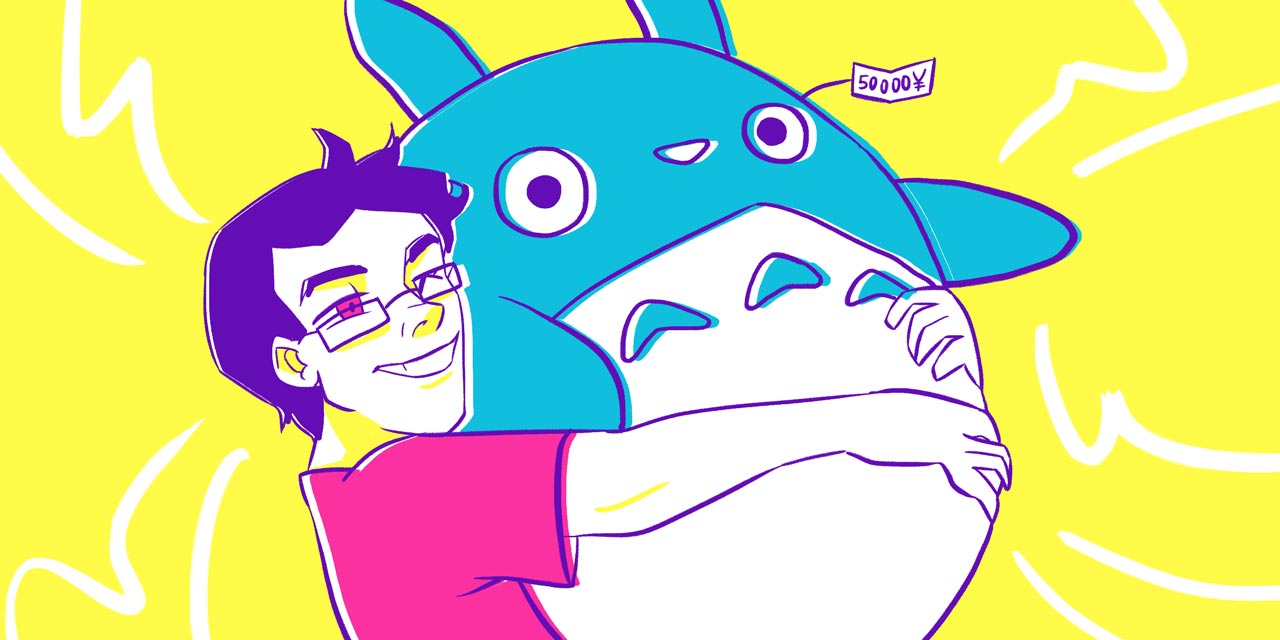
Otonagai is defined in the Sixth Edition of the Kojien Dictionary as:
玩具 付きの 菓子など 子供 向けの 商品を、 大人が 高額をつぎ 込んで 大量に 買い 込むことを 言う 俗語。
Or in English:
A colloquial term used when an adult spends a large sum of money to buy a great deal of products marketed toward children, such as candies that include toys.
The main distinction between otonagai and simply buying things in bulk is that it's not just about buying a lot of something. Otonagai is specifically buying a lot of something normally sold to kids. So buying 300 boxes of tissues at Costco or hoarding bottled water for the apocalypse is not otonagai. It specifically describes buying things meant for children, like buying all six My Little Pony figurines or every issue of the Adventure Time comic at once.
You can get a better idea of what otonagai means by breaking down the word into two parts:
Otona 大人
The first half of the word is: otona 大人, which means:
Adult
The kanji itself is a combination of "big" and "person." Big people are adults (generally).
Gai 買い
The second half is kai 買い or kau 買う (the "k" sound turns to a "g" sound because of rendaku), which means:
To Buy
Put the two words together and they become a verb that literally means "adult buying" or "buying like an adult." So when it's used in a sentence, it goes a little something like:
The main distinction between otonagai and simply buying things in bulk is that it's not just about buying a lot of something. Otonagai is specifically buying a lot of something normally sold to kids.
- どうしてもキュアショコラのカードが 欲しくて、プリキュアのチョコを20個も 大人買いしちゃった。
- I really wanted Cure Chocolat's card so I just otonagai'd 20 packs of Pretty Cure Choco Snacks.
Otonagai is a noun when describing the action itself. But it's also a suru verb, which basically means you're "otonogai-ing."
Otonagai Etymology
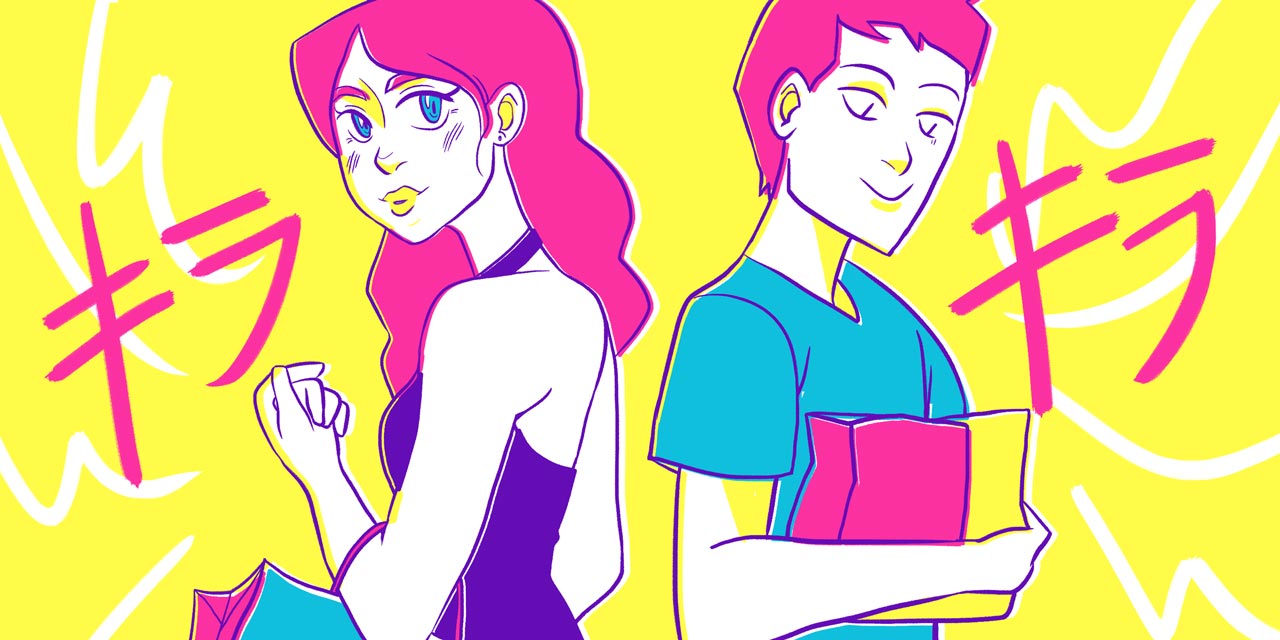
The word "otonakai" appeared in the Japanese Jargon Collection in 1892, according to the Nihon Kokugo Daijiten, which is the largest dictionary in Japan. But the kanji was 音無買い. This word meant "soundless buying" and was jargon among thieves for stealing products from the front of a shop. Though some speculate this is the origin of the modern otonagai, it's very unlikely.
The modern definition is most likely a recent invention. In the 1990s otonagai was already a trend, if not a term, with women who were hoarding cute merch from Sanrio. But the earliest known use of the actual word wasn't until November 1999, in Koji Kumeta's manga Katte Ni Kaizou.
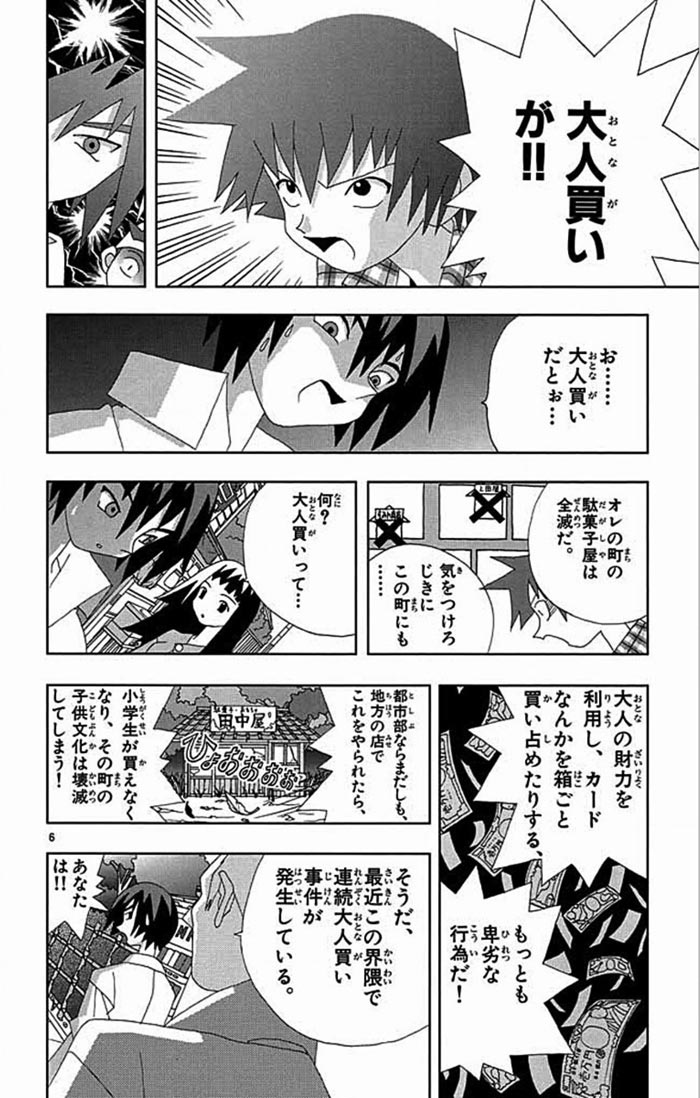
Boy: An otonagai!
Kaizou: Did… did you say an otonagai?
Boy: All the candy shops in my town are wiped out.
Boy: Be careful, he might come to this town too…
Umi: What's otonagai?
Kaizou: It's a very foul act of using an adult's assets to buy up stuff, like cards, by the box!
Kaizou: It's bad enough if you do it in the city, but if you do this in rural areas, elementary schoolers can't buy anything and that town's child culture is devastated!
Detective: That's right, there's been reports of serial otonagai incidents in the area.
Kaizou: You're…!!
While the exact origin of the term is not known, otonagai entered popular use in the Japanese language sometime in the early 2000s. Similar to Kumeta's manga where the man is buying trading cards by the box, card collectors popularized the term, but it also saw use among manga collectors and people buying children's snacks.
The earliest known use of the word otonagai wasn't until November 1999, in Koji Kumeta's manga Katte Ni Kaizou.
While the term officially refers to buying things meant for children, whether from your own childhood or things marketed to children today, some people have also started using otonagai to describe big, non-essential purchases as well. Popular Japanese fashion magazines such as An An started using otonagai to describe indiscriminate spending on chic clothes, makeup, and accessories. Otonagai has even been used to describe unnecessary buys like the latest in major household appliances (or a $630,000 butsudan).
In a January 2015 Vogue Japan editorial, Maki Hashida penned a short article entitled "Why I Can't Help but Otonagai Shoes and Bags."
When you buy one, you realize "they're comfortable to wear," or "you can fit a lot of stuff in here!" Let me introduce you to some shoes and bags that you can't help but buy more than one of.
So even though otonagai primarily means "buying a lot of things meant for children," it can mean "using your adult resources to buy things indiscriminately, in a way you couldn't when you were younger." The meaning changes slightly depending on the group of people using it, but the idea still holds.
Bottom line: consider the context before using otonagai.
Examples of Otonagai
Otonagai remains a part of the Japanese lexicon today. Some of the most visible examples online today are YouTubers who do otonagai and upload videos of their latest hauls. People like HikakinTV have massive followings that tune in for unboxing videos of all sorts of products, including Pokemon figurines and Japanese snacks. Just searching for the term on Youtube yields more than 80,000 results:
Video Games…
Beyblades…
Pens…
Even Rakuten, a Japanese competitor to Amazon, recognizes the term and sells complete sets of manga as part of their Otonagai Campaign.
Of course, there are older examples of otonagai, too. As mentioned before, Kumeta's Katte Ni Kaizou features one of the earliest examples where the term appears in volume 5, chapter 1, "This is how adults do it!!" as a mysterious man buys out all the trading cards in a shop while children look on, powerless to stop him.
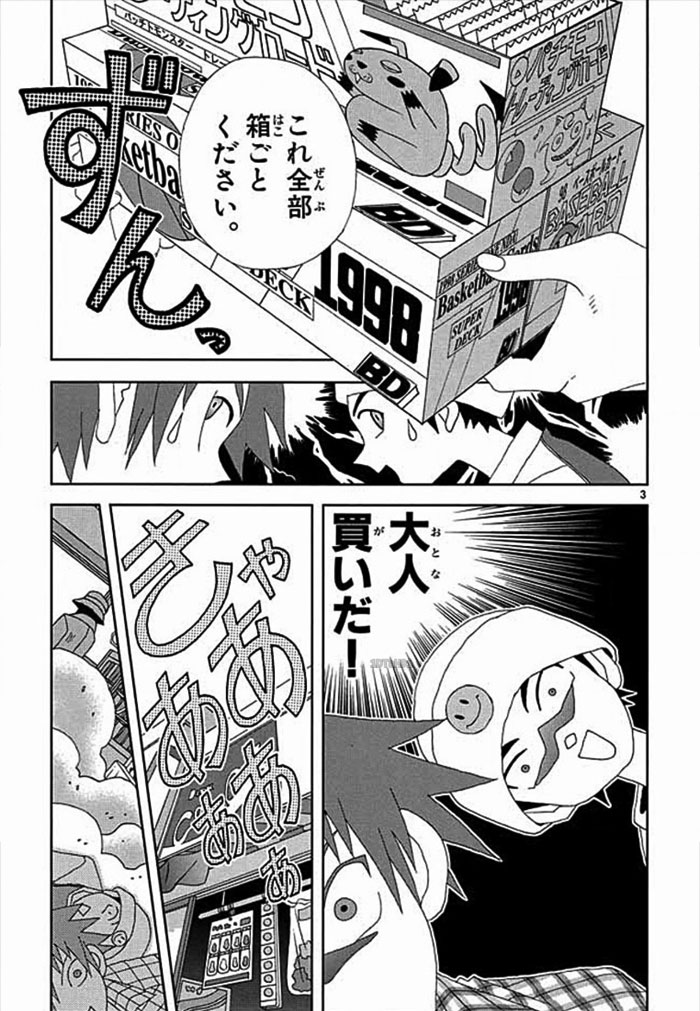
Man: I'll buy all of these by the box.
Children: It's otonagai!
One famous 2007 NicoNico video, simply entitled, "I made a whole lot of that thing I really liked as a kid," features a man buying and making a whole bunch of packets of Neru Neru at once, then frosting a cake with it. In the video's description he writes:
I otonagai'd this snack I used to eat a lot when I was little. And then I mixed them all up.
We All Otonagai
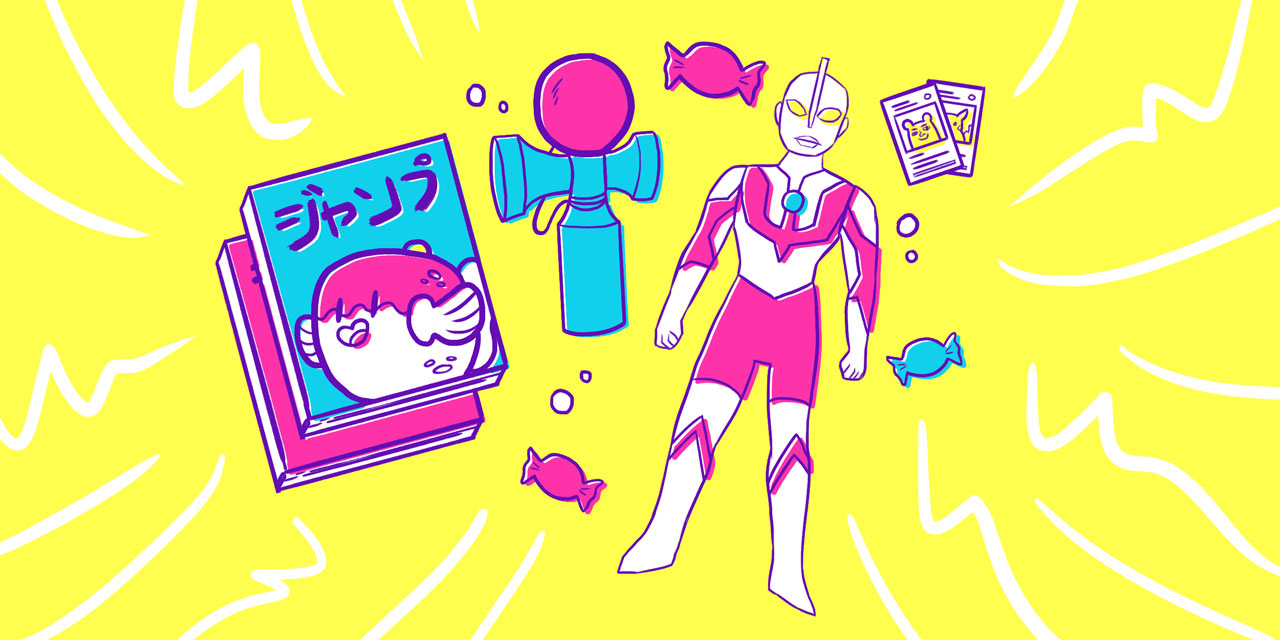
Though Japanese was the first to have a word for it, the otonagai phenomenon is not unique to Japan. Today, American baseball card collectors buy in bulk or pre-completed collector sets. People all over the world bought tons of Nintendo's Amiibo figurines, often one to open and one to keep mint-in-box. And what about all those comic book collectors out there? That's classic otonagai behavior.
Today, it's not all that uncommon for adults to buy or collect things "made for kids." Chalk it up to cultural changes from the internet or whatever. Chances are, you yourself have otonagai'd your fair share of plastic and/or sugary treasures. Or perhaps you've even otonagai'd in the high fashion sense, snapping up fifteen of the same brand of purse. Let us know on Facebook or Twitter what otonagai goodies have made you scream, "shut up and take my money!"
